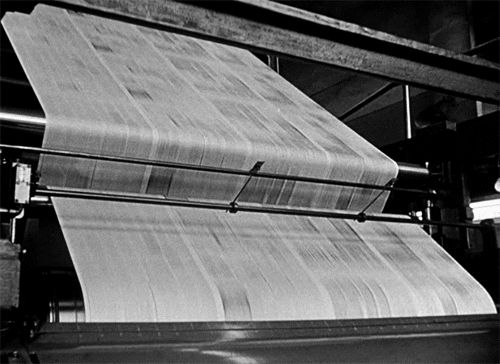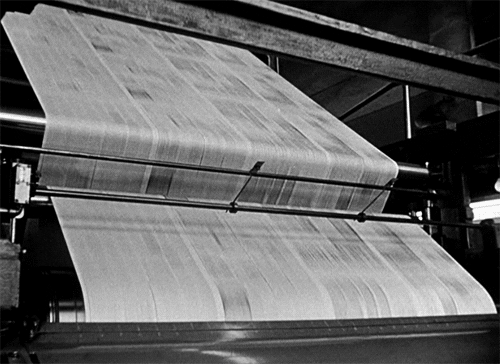When governments seek to jumpstart an economy in the midst of a recession, like now as a result of the "plandemic," they print money out of thin air. This is because they have no assets to back the paper "money." Money issued is based on a value that we accept to be valuable. But the continuous printing of money is dangerous, as it leads to inflation, devaluation and a move towards the collapse of a currency.
History reveals the fact that all fiat currencies eventually collapse. This is fact and not speculation. Look to Venezuela if you will. Currency is worthless. It is carried by the wind around on the streets and nobody bothers to pick it up because it is worthless. Yes, a couple of wheelbarrows might get you a loaf of bread, if you can find it, but the paper has been relegated to trash not worth sweeping up.

To better understand the destructive economic policy of printing money out of thin air, let's use a simple analogy. Let's imagine you own a Phu Quoc Ridgeback dog, native only to Vietnam (and quite expensive at around $15,000 to $20,000 each).
Now let's take that dog to some scientists who specialize in animal cloning. We ask them to make one million of these dogs for us. What have we done? Quite simply, the dog is no longer unique, right? This is because we have a million of them. But what are the ramifications?
The ramifications are that we have devalued the dog. Since it is no longer unique, its cost drops exponentially and the dog is much easier to buy. Now let's substitute the dog for money, say a U.S. dollar. The more dollars a government puts into circulation the more inflation we observe. This is true of any other currency as well.
Now your 40,000 pesos or $2,500 a month salary buys you less goods and services. Eventually, hyperinflation can occur (like Venezuela) and the currency collapses. Not good but we are not there...yet. It is coming!
The 2008 global recession witnessed governments pumping money into the economy to reverse the damages. However, what they accomplished was delaying the inevitable. Sure, interest rates remained low and the stock markets rose to the highest levels in history, but it's all a bubble ready to burst.
The consumer price index (CPI) is a measure that shows you how much your money is worth for essentials goods, such as your food, clothing, and shelter. These are the foundations of Maslow's hierarchy of needs people need to survive. If you have been paying attention since the pandemic began, you have noticed an increase in price for these goods but less spending power. Maybe the $100 you spent on food previously bought you four bags of grub, but now only three. This is inflation slamming you in the face.
Remember the Arab Spring? This was caused by inflation (well, one reason, anyway). People could no longer afford to feed themselves and overthrew the governments (with the assistance of outside interventions, of course). But the lesson here is that inflation is damaging when it is not controlled. And yet we observe government printing presses spitting out paper currency on overtime.

The 2008 global recession is precisely why Satoshi Nakamoto (whomever that really is) came up with Bitcoin. He or she realized that centralized currencies were doomed thus he came up with the concept of a decentralized form of currency that had no central governing or controlling body. The community that invested in Bitcoin were the owners, as opposed to the governments of the world. It provided a rather safe haven for those seeking to move away from government currencies and remain in charge. Of course, as we all know, Bitcoin Cash was a hard fork from Bitcoin. Both are quite valuable as compared to their humble beginnings.
Going forward, we are at the precipice of a monetary breakdown of world currencies. This is why governments are moving towards a central bank digital currency (CBDC) system. The eventual outcome of this process is a one-world digital currency run by the elite globalists and bankers.
Many globalists advocate for a CBDC and state that cryptocurrencies would become obsolete and leave people like us holding an empty wallet. I vehemently disagree. As may be observed, more and more people are entering the cryptocurrency markets. It stands to reason, logically speaking, that the more people holding crypto, the more robust it becomes.
In the end, inflation is devaluing world currencies and the end of cash draws near. This will leave digital currency from central banks and cryptocurrencies as the only means to buy and sell. As a disclaimer, one may still barter. What our future thus holds is a war between central bank globalists and the common people. We have seen deliberate inflation cause a dip in crypto but let's not panic, people! To flee Bitcoin Cash #BCH is to surrender to the globalist grifters. If you want these thugs telling you what you can and cannot buy based on a social credit score (like in China) have at it. As for me and my house, we will stick with crypto, primarily Bitcoin Cash!


Give us your best estimate when USD will collapse? Second one would be, which crypto will prevail? I guess the most money is on BTC.